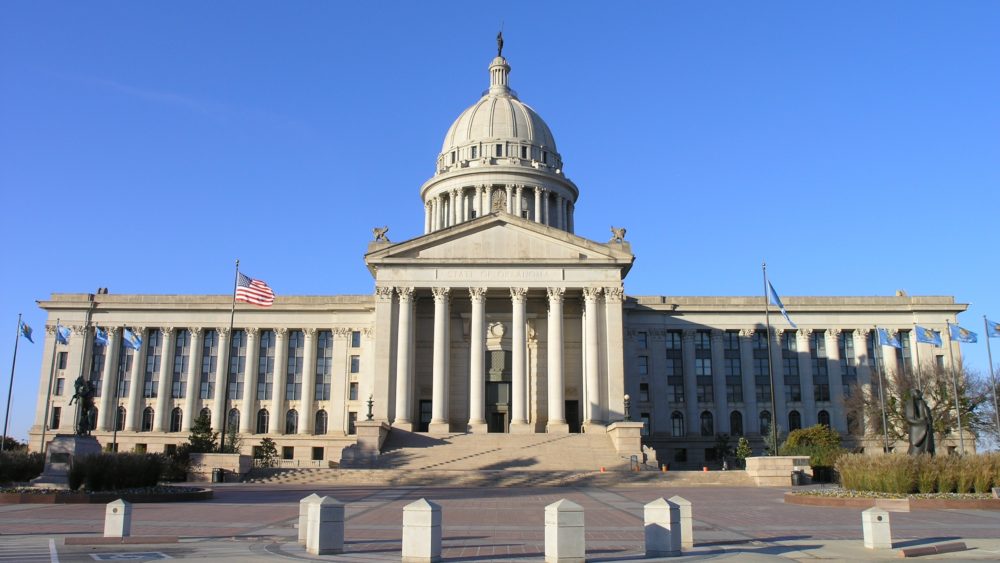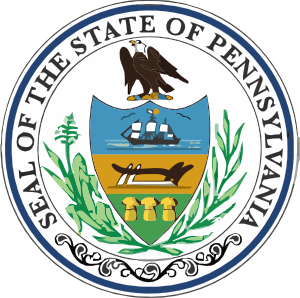November 14, 2022 •
Can You Tell Me About Lobbying in Arizona? | Ask the Experts

Q: What are the different types of lobbyists in Arizona? Which expenditures are required to be reported on the quarterly or annual report? Do expenditures by my contract firm need to be disclosed? A: In Arizona, there are three main […]
Q: What are the different types of lobbyists in Arizona? Which expenditures are required to be reported on the quarterly or annual report? Do expenditures by my contract firm need to be disclosed?
A: In Arizona, there are three main types of lobbyists required to be listed on the principal registration: the designated lobbyist, authorized lobbyists, and Lobbyists for Compensation (LFC). The designated lobbyist acts as the single point of contact for the principal and is required to file quarterly and annual reports. Authorized lobbyists are employed by the principal for the purpose of lobbying, other than the designated lobbyist, listed on the registration and permitted to perform lobbying activities on behalf of the principal. An LFC is a third-party lobbyist or contract firm compensated for the primary purpose of lobbying on behalf of a principal. While an LFC can act as the designated lobbyist for a principal most companies prefer to use an in-house employee to serve as point of contact for accountability purposes.
The designated lobbyist and each LFC are required to file four separate quarterly reports. The fourth quarter report also requires a cumulative total for the calendar year. While quarterly reports do not require personal expenditures by an authorized lobbyist to be reported, all expenditures must be disclosed in the principal annual report. The principal annual report must also include all reportable expenditures previously disclosed by each LFC on their quarterly reports.
Reportable expenditures provide a benefit to an individual state officer or state employee, whether or not the expenditure was made in the course of lobbying. All expenditures must be reported in one of the following categories: food and beverage; speaking engagement; travel and lodging; flowers; or other expenditures.
Expenditures more than $20 must be itemized and include the name and title of the state officer or employee benefiting; date, amount, and category of expenditure; and the name of the person who made the expenditure on behalf of the principal. Expenditures less than $20 may be reported in the aggregate. Additionally, expenditures for special events require the disclosure of the legislative body invited, date, location, description of event, and the total amount to be disclosed.

Oklahoma Capitol Building
The Oklahoma Ethics Commission will hold a regular meeting on Friday, April 9 at 10 a.m. to discuss the use of campaign funds for officeholders and lobbyist expenditures. On the topic of campaign finance, the meeting will cover the campaign […]
The Oklahoma Ethics Commission will hold a regular meeting on Friday, April 9 at 10 a.m. to discuss the use of campaign funds for officeholders and lobbyist expenditures.
On the topic of campaign finance, the meeting will cover the campaign funds for officeholders to purchase gifts of small value for visitors, including students, to their offices at the capitol. The commission will also review campaign fund expenditure categories to provide more clarity for what expenses are campaign-related, officeholder-related, or surplus funds.
On the topic of lobbyist expenditures, the commission will review the expenditure lump-sum category of food and beverage provides for a caucus event to include events that do not pertain to caucus business. Implementation of a non-solicitation requirement for gifts from lobbyists and liaisons for state officers and employees will also be considered.
The meeting will be held in person and live-streamed for the public. The next regular meeting is scheduled for Friday, May 14.
December 28, 2016 •
Michigan Lobbying Thresholds Updated for 2017
The Bureau of Elections adjusted lobbying reporting thresholds, fees and penalties for the new year. These annual adjustments reflect changes in the Detroit consumer price index and are effective January 1, 2017. Updates include a $50 increase in the expenditure […]
 The Bureau of Elections adjusted lobbying reporting thresholds, fees and penalties for the new year. These annual adjustments reflect changes in the Detroit consumer price index and are effective January 1, 2017.
The Bureau of Elections adjusted lobbying reporting thresholds, fees and penalties for the new year. These annual adjustments reflect changes in the Detroit consumer price index and are effective January 1, 2017.
Updates include a $50 increase in the expenditure threshold. Any lobbyist or lobbyist agent is required to register if expenditures exceed $2400 during a 12-month period. Transactions of $1200 or more between a lobbyist/lobbyist agent and a public official must be reported. The 2016 threshold was $1175.
Additionally, the permitted value of food and beverages purchased for public officials in any one month increased from $58 to $59.
November 16, 2015 •
Pennsylvania Cracking Down on Those Failing to Report Lobbying Expenses
The Pennsylvania Ethics Commission is increasing its enforcement efforts against those who fail to report lobbying expenditures. This year, 31 groups were cited for failing to file expense reports with fines totaling $90,300. In comparison, last year, only 15 citations […]
 The Pennsylvania Ethics Commission is increasing its enforcement efforts against those who fail to report lobbying expenditures. This year, 31 groups were cited for failing to file expense reports with fines totaling $90,300. In comparison, last year, only 15 citations were issued with fines reaching $44,000.
The Pennsylvania Ethics Commission is increasing its enforcement efforts against those who fail to report lobbying expenditures. This year, 31 groups were cited for failing to file expense reports with fines totaling $90,300. In comparison, last year, only 15 citations were issued with fines reaching $44,000.
At the same time, the General Assembly is working on legislation to increase the penalty for noncompliance. House Bill 1348’s proposed increase is from $50 per day to a tiered system where the fine increases the later the report becomes. The bill passed the House unanimously in October and is awaiting action in the Senate.
Q. I am currently a registered lobbyist who files reports on a monthly basis. I incurred a permissible meal expenditure on a covered official at the end of last month. However, I did not pay for the expenditure until I […]

Q. I am currently a registered lobbyist who files reports on a monthly basis. I incurred a permissible meal expenditure on a covered official at the end of last month. However, I did not pay for the expenditure until I received my credit card bill this month. What date should I use to report the expenditure?
A. A common question concerns what accounting method to use for the reporting of expenses. The accrual basis of accounting reports expenditures according to the time the benefit is given. The cash basis of accounting reports expenditures according to the time it is actually paid.
The exact accounting method used depends on the jurisdiction in question. Both Arizona and Michigan prefer the accrual method of accounting. An expenditure is reported when it occurs or is given, not when it is paid. Indiana provides for activity reports to be filed on a cash basis. South Carolina also follows this method requiring an expenditure to be reported at the time it is paid.
Some states do not have a set accounting method to be used when reporting expenditures or permit either method to be used. In California, an expenditure should be reported at the time the benefit is given; however, if it is reported when the money is paid, the actual date of the expenditure should be noted. Pennsylvania allows a registrant to use any reasonable methods of estimation and allocation. However, once a method of accounting is chosen, filers should be consistent in its use. The filer should also keep an internal record of the accounting method used in case there is an audit by the Pennsylvania Department of State. Texas law indicates an expenditure does not have to be reported until the amount is readily determinable. An expenditure made by a credit card may be reported either according to when the expenditure is made or when the bill is received.
After confirming an expenditure is permissible, you must include it on the proper report. Consult with your jurisdiction’s filing office to determine the accounting method used for the disclosure of expenditures.
![]()
You can directly submit questions for this feature, and we will select those most appropriate and answer them here. Send your questions to: experts@stateandfed.com.
(We are always available to answer questions from clients that are specific to your needs, and we encourage you to continue to call or e-mail us with questions about your particular company or organization. As always, we will confidentially and directly provide answers or information you need.) Our replies to your questions are not legal advice. Instead, these replies represent our analysis of laws, rules, and regulations.
March 11, 2013 •
Florida Senate Bill Would Relax Lobbyist Expenditure Prohibition
New exceptions could begin July 1
 A bill to allow lobbyist expenditures on legislators is pending before the Florida Senate. Currently, almost all expenditures by lobbyists and principals on members and employees of the legislature are prohibited.
A bill to allow lobbyist expenditures on legislators is pending before the Florida Senate. Currently, almost all expenditures by lobbyists and principals on members and employees of the legislature are prohibited.
Senate Bill 1634 provides exceptions to the ban on lobbyist expenditures, permitting:
- Individual servings of nonalcoholic beverages provided by a lobbyist or a principal as a courtesy to the attendees of a meeting;
- A single meal not solicited by the member or employee of the legislature, served as part of a scheduled meeting of an established membership organization that is also a principal, and attended by the member or employee as a featured speaker, moderator, or participant of a panel discussion; and
- Food and beverages provided as part of a widely attended event hosted by a membership organization or governmental body that is also a principal if the cost per attendee does not exceed $25.
Widely attended event is defined as one reasonably expected to be attended by at least 25 persons other than members or employees of the legislature, open to persons from throughout a given industry or profession, or to a wide range of persons interested in a given issue presented at the event.
The bill requires the houses of the legislature to establish a rule regarding registration and approval of events at which such expenditures may be made.
The new exceptions would take effect on July 1, 2013, and would expire June 30, 2015.
State and Federal Communications, Inc. provides research and consulting services for government relations professionals on lobbying laws, procurement lobbying laws, political contribution laws in the United States and Canada. Learn more by visiting stateandfed.com.

